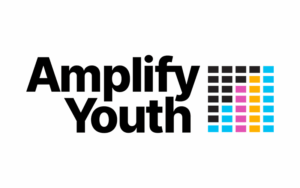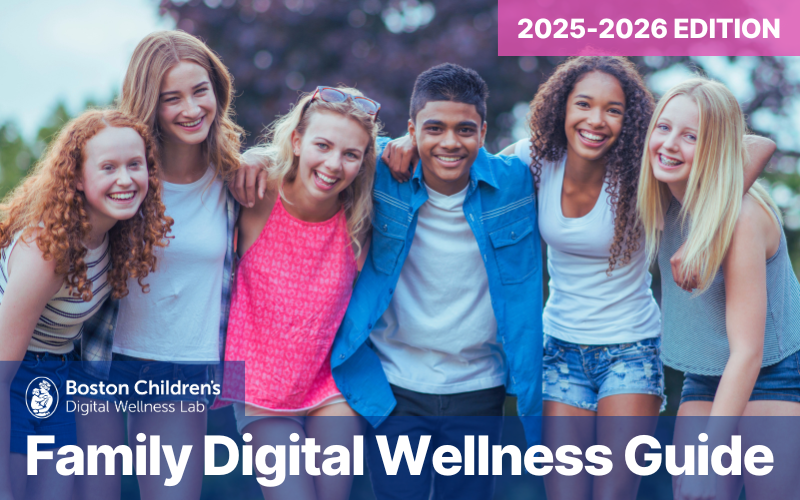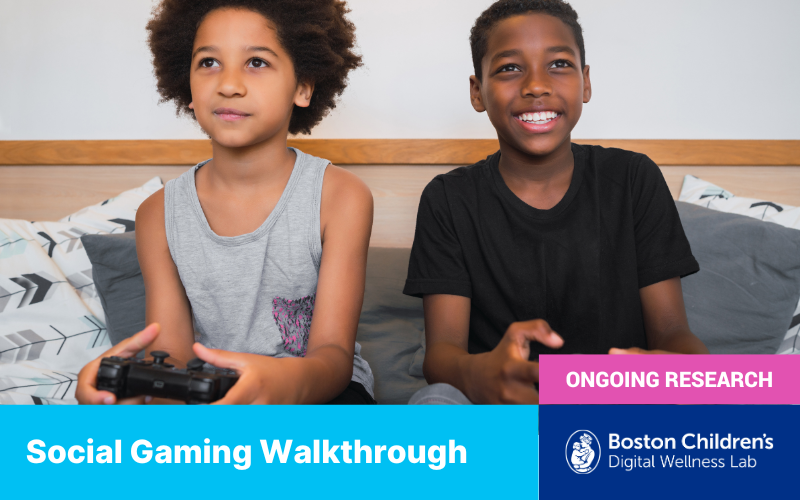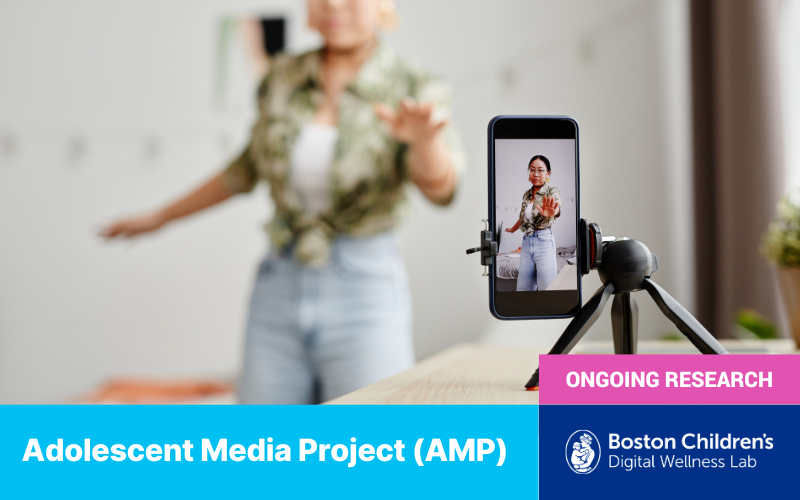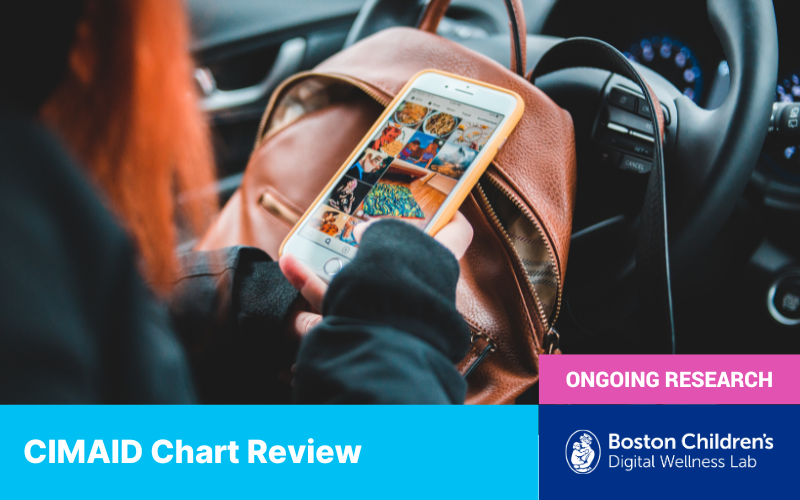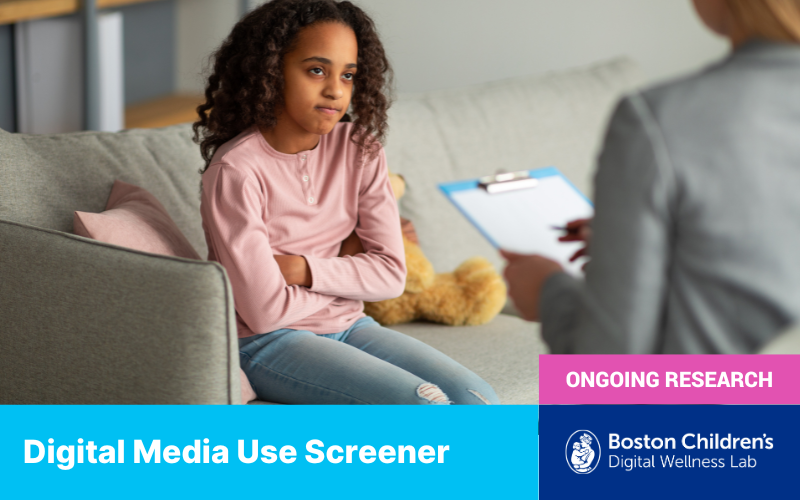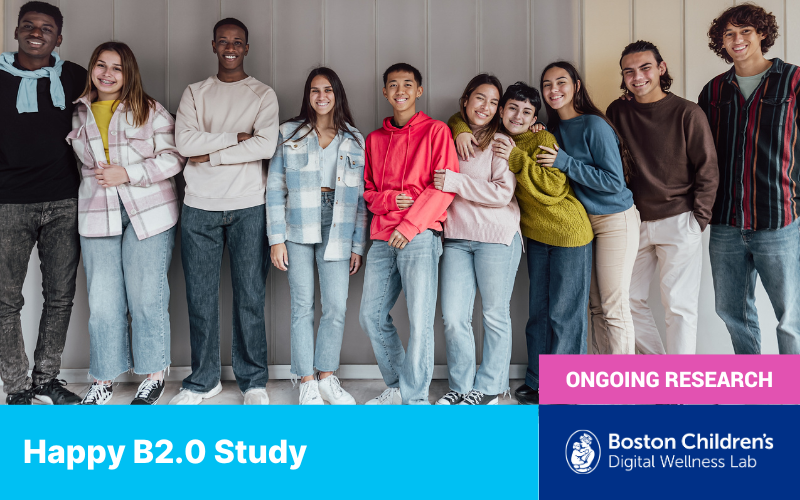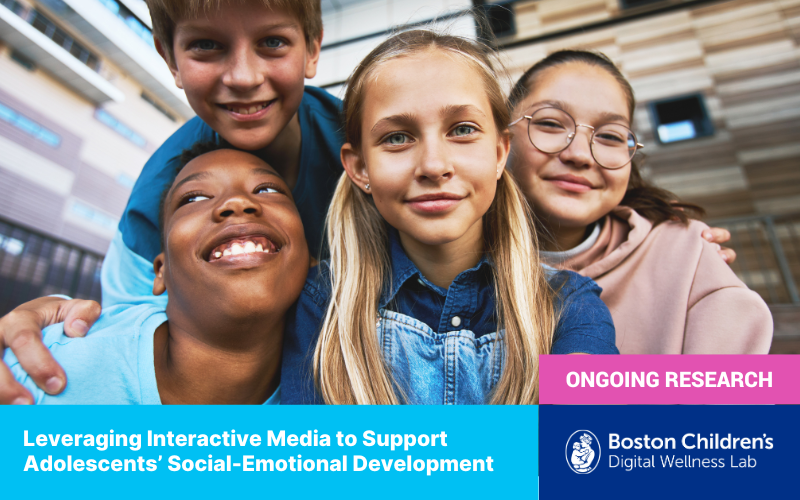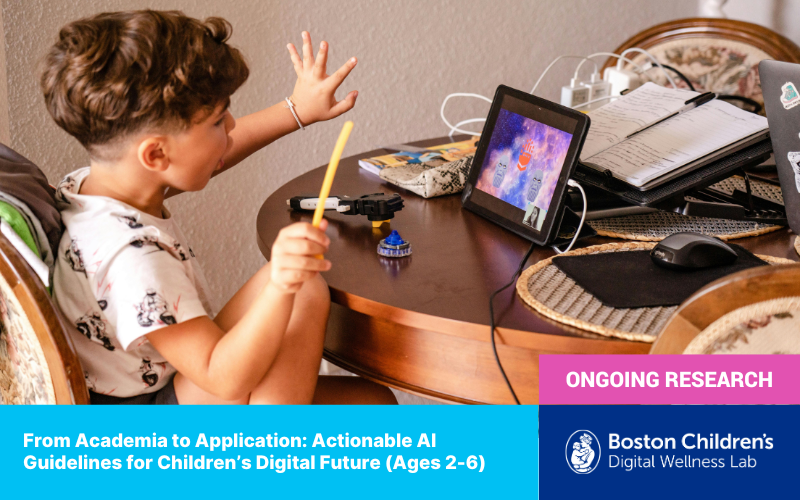Overview
The Digital Wellness Lab conducts rigorous, multi-method research to understand how interactive media impacts the mental, social, and emotional health of children and teens. We translate findings into actionable insights through reports, publications, family-focused content, and direct engagement with both the tech/media and healthcare industries.
For the tech and media industry, we seek to embed what we’re learning into the decisions leaders are making every day about product, policy, and user supports to ensure young people’s social, emotional, and mental wellbeing and overall health are at the forefront.
For the healthcare industry, we share our findings to help clinicians better understand the impacts of interactive media on child and teen health and behavior.
The Digital Wellness Lab operates with a steadfast commitment to academic integrity, ethics, and independence, ensuring that all research endeavors are driven solely by scientific curiosity and the pursuit of knowledge. While our work is supported in part by donations from technology, entertainment, and healthcare companies; philanthropic organizations; and individuals; we do not engage in research for hire or accept funding that could compromise our autonomy or objectivity. We do not evaluate, endorse, or give preference to specific products or platforms.
Areas of Study
The Digital Wellness Lab operates on the belief that supporting the mental health of young people and families today requires addressing their experiences within the digital ecosystem. Our research and initiatives are seated within three core priority areas:

Mental and Emotional Wellbeing
We are committed to deepening our understanding of how attributes of the individual and the online experience interact
to shape, for better or worse, young people’s mental and emotional health.
By identifying what helps and what harms, we work to reduce risks and elevate positive experiences that support lifelong mental wellness.

Prosocial Development
Our research in this area explores how technology and media can be powerful tools for building connection, empathy, and emotional intelligence.
Our work is focused on identifying strategies that
help young people develop
key social-emotional skills like self-awareness, regulation,
and healthy relationships.

Problematic Media Use
In close partnership with CIMAID and clinical experts at Boston Children’s Hospital and Harvard Medical School, we are examining the drivers of problematic media use.
Our goal is to create practical, science-based preventions and interventions that support healthier digital habits for youth and their families.
We are particularly focused on understanding the impacts of video games, artificial intelligence (AI), and the multiple types of social media platforms and communication applications—the tools most widely used by youth and most likely to influence their health and development.
Pulse Surveys
The Digital Wellness Lab conducts 3-5 Pulse Surveys annually to deliver timely insights into how children and adolescents interact with media and technology. Using national samples of parents and teens, sometimes supplemented with online or asynchronous focus group methods, we gather, analyze, and report data in a space of weeks instead of years. Findings are shared through research reports, public-friendly blog posts, industry recommendations, and social media and newsletter content, and are integrated into our broader research, resources, and convenings. We also engage directly with supporters to contextualize findings and inform responsible design decisions.
In 2025, the following Pulse Surveys are underway or in design:
- School Cell Phone Bans: Understanding how teens experience stricter school phone policies—exploring goals, impacts, whether student voices were considered, and how policies can be improved.
- Relationships & Belonging: Investigating how young people form meaningful online connections and how individual traits, online behaviors, and platform design influence those experiences.
- AI & Social-Emotional Growth: Exploring how teens use AI tools to develop social-emotional skills and build relationships, how those skills translate to physical-world interactions, and how trust, belief, and misinformation from AI influence that development.
- Influencers’ Impact on Behavior: Examining the connection between influencer content on social media and short-form video platforms and youth sexual risk-taking.
-
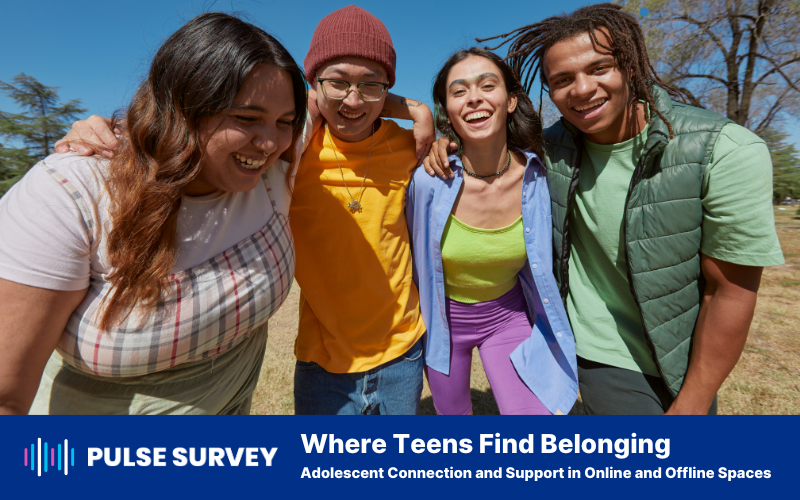
Pulse Survey: Where Teens Find Belonging: Connection and Support in Online and Offline Spaces
Our survey of 1,598 U.S. adolescents reveals that online and offline belonging are deeply interconnected, and that digital spaces extend rather than replace in-person connection.
-
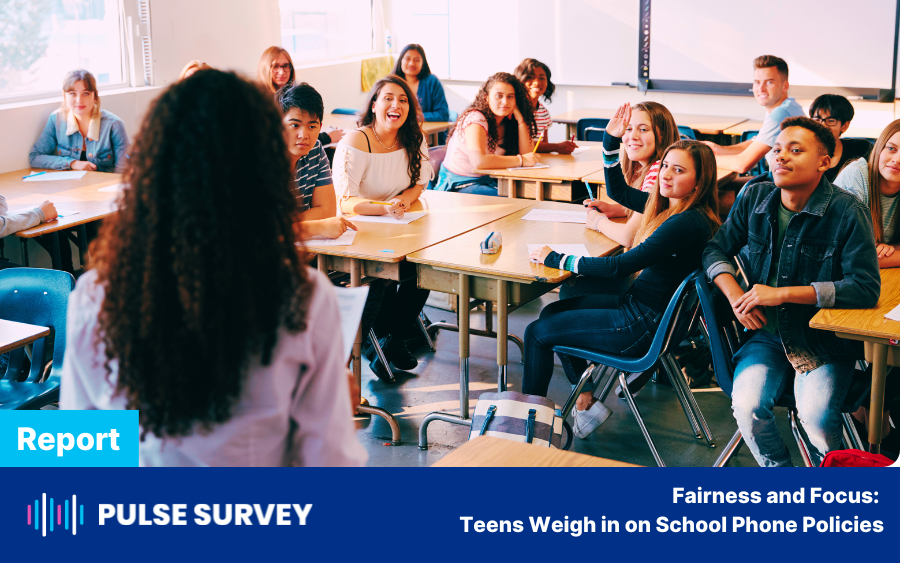
Pulse Survey: Fairness and Focus: Teens Weigh in on School Phone Policies
This report explores how teenagers are navigating the opportunities and challenges that come with this rapidly evolving technology, including how they are using AI, their perceptions and concerns around these…
-
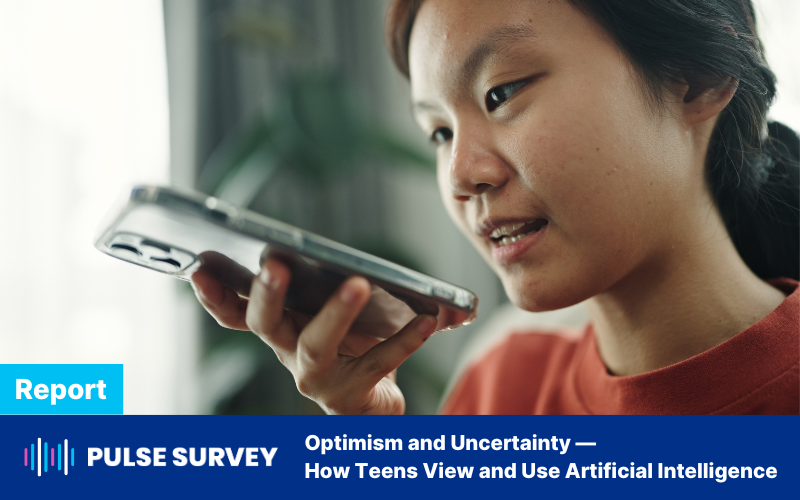
Pulse Survey: Optimism and Uncertainty — How Teens View and Use Artificial Intelligence
This report explores how teenagers are navigating the opportunities and challenges that come with this rapidly evolving technology, including how they are using AI, their perceptions and concerns around these…
Research Briefs
In addition to our own research, we rely on the work of other researchers and organizations to gain an understanding of the effects of digital media and technology on young people. Research briefs are one way that we share the relevant findings of a particular study (or research on a specific topic) with our supporters and the general public.
-
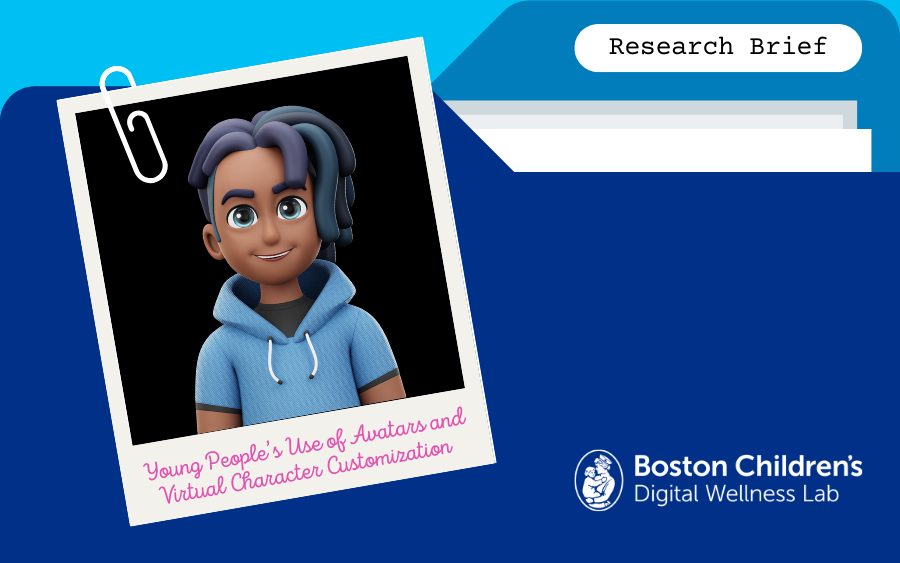
Research Brief: Young People’s Use of Avatars and Virtual Character Customization
This research brief reviews how young people access certain types of content frequently cited as concerning by regulators and platforms (e.g. violence, sexual content), and how young people respond to…
-
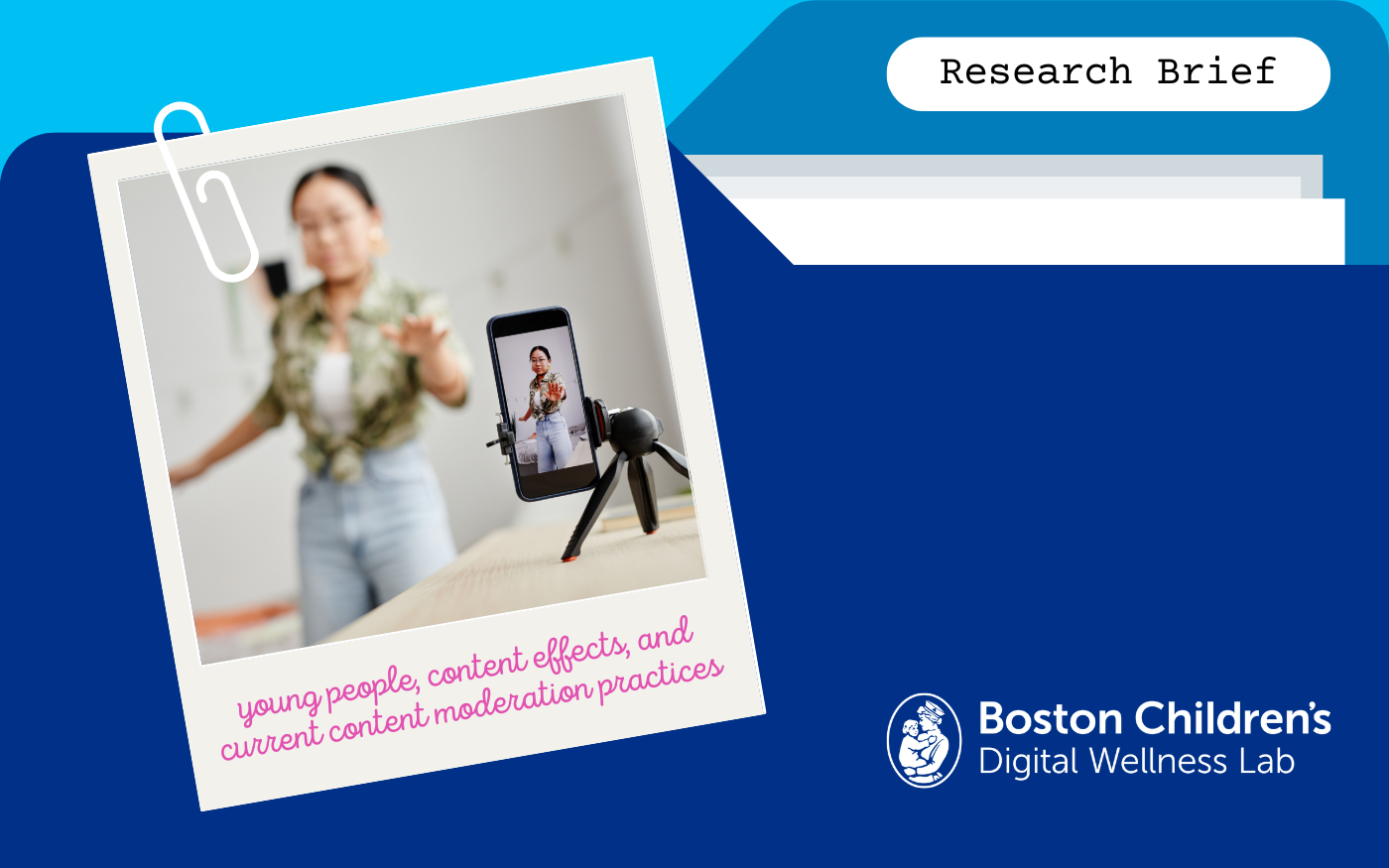
Research Brief: Young People, Content Effects, and Current Content Moderation Practices
This research brief reviews how young people access certain types of content frequently cited as concerning by regulators and platforms (e.g. violence, sexual content), and how young people respond to…
-
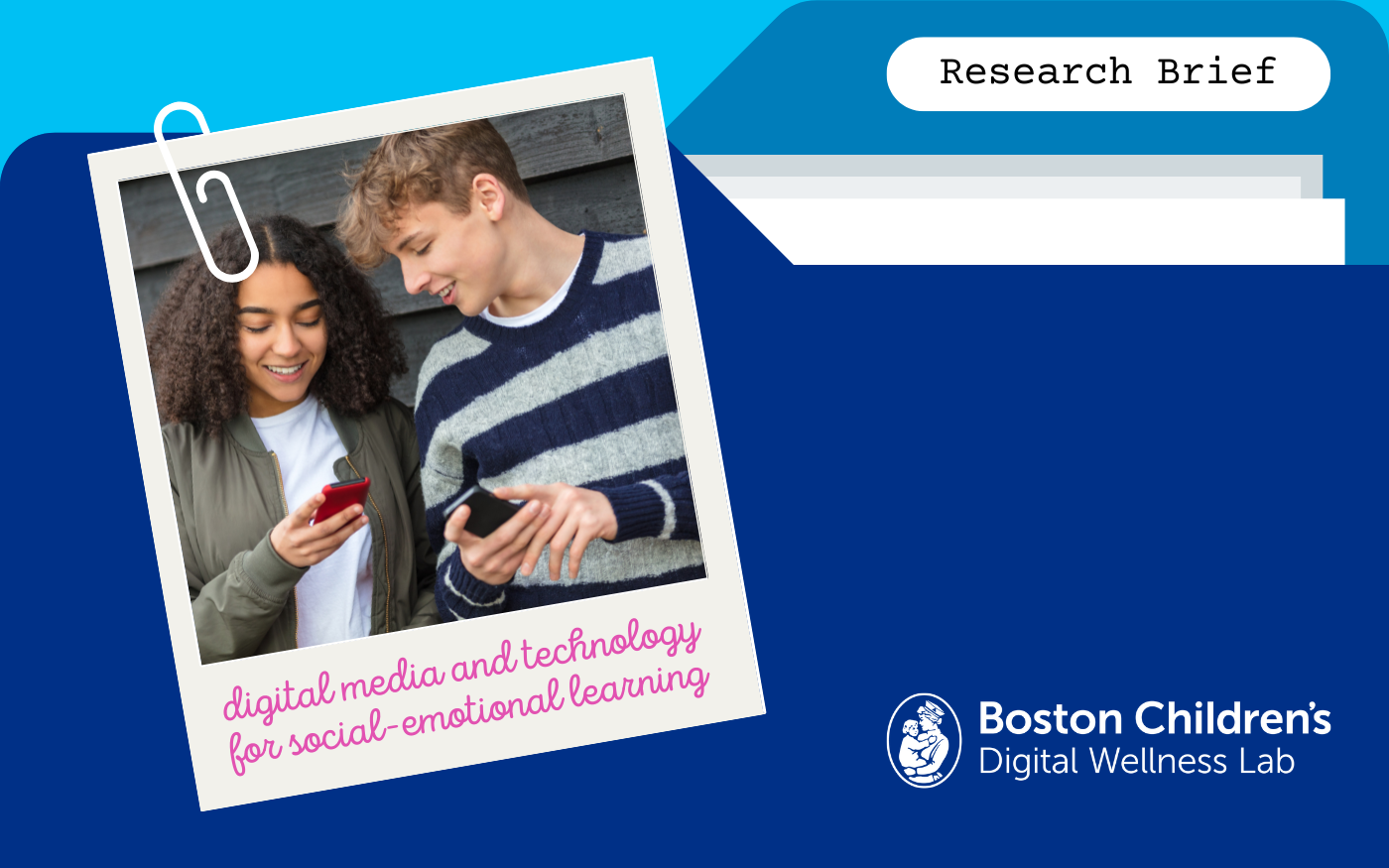
Research Brief: Digital Media and Technology for Social-Emotional Learning
Social-emotional learning (SEL) is often referred to as life skills, 21st century skills, and non-cognitive skills. A robust body of research highlights SEL’s positive impact on key developmental outcomes.
Long-Form Research
We conduct longer-form academic research to more deeply explore key questions that are raised through our Pulse Surveys and in our engagement with stakeholders in the digital wellness and tech/media space.






